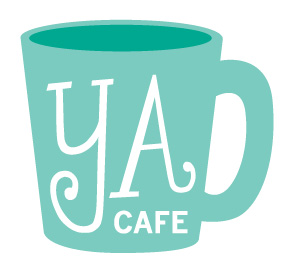 Welcome Back to YA Cafe, where book lovers can gather and chat about teen literature. I’m your barista, along with Ghenet from All About Them Words.
Welcome Back to YA Cafe, where book lovers can gather and chat about teen literature. I’m your barista, along with Ghenet from All About Them Words.
Each Friday we pick from a menu of topics and share our thoughts on our respective blogs. We’ve also got plans brewing for interviews, events and even some exciting giveaways, so stay tuned! Join the discussion by responding in the comments, on your own blogs or on twitter using the hash tag #YAcafe.
This Week’s Special: Banned Books Week
As many of you may know, this week is Banned Books Week, and all week long there have been events–online and off–celebrating banned books and our First Amendment right to read what we want. But why address this topic on a YA Cafe day? Well, one quick look at the banned books lists and you’ll notice that somewhere around half of the banned books fall under the umbrella of teen literature. Now, when you consider that teen literature is only one small slice of the literary pie (a fast-growing slice, to be sure, but still just one small part of the whole) the number of banned books from this category seems grossly disproportionate.
So this week, Ghenet and I thought we’d look over the most recent Banned Books List from the ALA and tell you which books on that list we’d read. (To find this year’s full Banned Books List, go to this link and scroll to the bottom of the page. There are PDF downloads for lists from the past seven years). According to the ALA, the top ten most banned books in 2010 were: (books with * are ones I have read)
1) And Tango Makes Three, by Peter Parnell and Justin Richardson
2) The Absolutely True Diary of a Part-Time Indian, by Sherman Alexie *
3) Brave New World, by Aldous Huxley *
4) Crank, by Ellen Hopkins
5) The Hunger Games, by Suzanne Collins *
6) Lush, by Natasha Friend
7) What My Mother Doesn’t Know, by Sonya Sones
8 ) Nickel and Dimed, by Barbara Ehrenreich
9) Revolutionary Voices, edited by Amy Sonnie
10) Twilight, by Stephenie Meyer
But for me, the banned book from the full 2010-2011 List that had the most impact was Vegan Virgin Valentine by Carolyn Mackler, which was challenged at the Quitman, Tex. Junior High library (2011) by a parent who described one scene as “on the verge of pornography.” (Source: Jan. 2011, p. 8.)
First off, let’s just chuckle at the irony that a book with the word “virgin” in the title gets challenged for being too “pornographic.” I mean, did said parent actually read the book? Because there isn’t an actual sex scene in it, and trust me, when it comes to make-out scenes this book might have some steamy ones, but nothing even nearing “pornography.”
Secondly, I can see why over-protective parents might feel threatened by this book, and it’s not because of sex. This book is about a girl who does everything her parents want her to do. Then one day, she says “enough” and starts thinking for herself. Frankly, I think the message about independence is far more scary to parents than the alleged scene that’s “on the verge of pornography.” It’s not so much that the main character has a steamy make-out session with her boyfriend, but that she’s doing it behind her parents’ backs and with a boy they wouldn’t approve of. I’d be willing to be that this is what freaked out that outraged parent, not the so-called pornographic scene. I mean, teens having minds of their own… such a scary concept, right?
Forgive me, but isn’t the whole point of kids reading books like Vegan Virgin Valentine for them to figure out their own opinions about important life topics? What’s the point of teens having their own brains and free will and all that good stuff, if they never get to use it? And honestly, the kids reading these banned books are not the ones I worry about. After all, they’re reading. The ones I worry about are the kids who don’t read anything at all. *Steps down from soapbox.*
Soapbox is free; anyone else want to hop up? And while you’re at it, tell me: how many books from this year’s banned list have you read? Did any one book really hit home for you? Which book was it?
To read about Ghenet’s pick from the Banned Books List, check out her YA Cafe post. Also, don’t forget to tweet about YA books that you love on Twitter, using the #YAcafe and #YAsaves hash tags.






 Call me Gabi (pronounced gah-BEE). I'm a writer, freelance teacher, and a lover of books and words. I'm also the instigator of DIY MFA. iggi's my sidekick, but he thinks he's the brains behind this operation.
Call me Gabi (pronounced gah-BEE). I'm a writer, freelance teacher, and a lover of books and words. I'm also the instigator of DIY MFA. iggi's my sidekick, but he thinks he's the brains behind this operation.
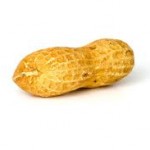 Goodbye is for Sissies
Goodbye is for Sissies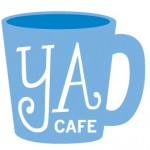 YA Cafe: What YA Book are You Thankful For?
YA Cafe: What YA Book are You Thankful For?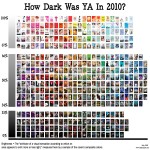 YA Cafe: Why I Love Dark YA
YA Cafe: Why I Love Dark YA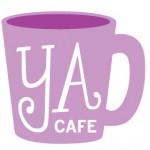 YA Cafe: YA Appreciation Month
YA Cafe: YA Appreciation Month
Comments on this post
I copied this quote just last week and it is too perfect not to share it here:
30. September - 10:56 am.
Quoting Erica Jong
If sex and creativity are often seen by dictators as subversive activities, it’s because they lead to the knowledge that you own your own body (and with it your own voice), and that’s the most revolutionary insight of all. (164)
.
This is from Julia Cameron’s Finding Water.
Out of the list, I’ve only read Twilight. I’ve heard of The Absolutely True Diary of a Part-Time Indian and I’ve got The Hunger Games on my shelf to-read but apart from that, these other titles aren’t familiar to me.
I understand parents taking an interest in what their children are reading but banning a book outright is just wrong.
30. September - 12:59 pm@Satia–LOVE the quote! Thank you so much for sharing!
30. September - 1:51 pm.
@Keri–I totally agree. I think the trouble with book banning is that many times adults *think* they’re taking an interest in what their kids are reading by skimming through a YA book or two, but they fail to actually look at what the books in question are really *saying.* Worse yet, some adults get so caught up in their own outrage that they won’t even bother to have a thoughtful conversation with their teens about the content they find problematic. Instead of using a controversial book as a vehicle for conversation, they shut down the lines of communication altogether by banning or challenging the books in question. Honestly, I’d be willing bet that a large percentage of book banning is simply a symptom of lazy parenting. But that’s just me.